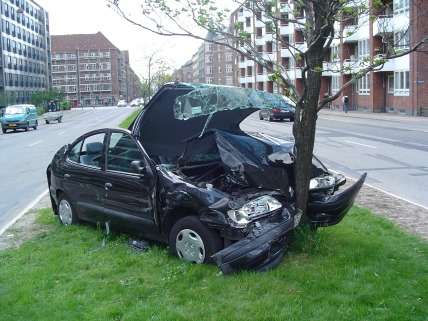Anti-Pot Analyst Claims Fatal Crashes in Washington 'Have Risen 122 Percent'
- OurStudio

- May 16, 2016
- 3 min read

Wikimedia
In a recent essay warning that the legalization of marijuana leads to more fatal crashes caused by stoned drivers, Heritage Foundation analyst Cully Stimson claims "fatal driving accidents [in Washington] have risen 122 percent between 2010 and 2014." If fatal crashes more than doubled in Washington between 2010 and 2014, it would have been a dramatic reversal of a downward trend that had prevailed for decades in that state and across the country. But according to the source Stimson cites, the Washington State Traffic Safety Commission (WSTSC), there were 429 fatal crashes in 2014, compared to 422 in 2010. That's an increase of 1.7 percent. The change Stimson describes is 72 times as big.
What about fatal collisions in which a driver tested positive for marijuana? Those rose from 78 in 2010 to 86 in 2014, an increase of about 10 percent. Meanwhile, fatal crashes involving alcohol-impaired drivers fell 24 percent, from 135 in 2010 to 103 in 2014. Total fatal crashes involving alcohol, marijuana, or other drugs fell by about 5 percent, from 218 in 2010 to 208 in 2014.
So what is Stimson talking about? It seems he is referring to the number of drivers in fatal accidents who tested positive for active THC (as opposed to an inactive metabolite) and did not test positive for alcohol or other drugs. According to a 2015 WSTSC report, that number rose from nine in 2010 to 20 in 2014, which is indeed a 122 percent increase. But a 122 percent increase in fatal accidents involving THC-only drivers does not translate into anything like a 122 percent increase in the total number of fatal accidents.
I'm not sure why Stimson chose 2010 as the baseline year, since Washington voters approved marijuana legalization at the end of 2012 and legal recreational sales did not begin until the middle of 2014. The number of THC-only drivers in fatal crashes rose from 13 in 2012 to 20 in 2014—a 54 percent increase, or less than half the increase highlighted by Stimson. Again, that does not mean there was a 54 percent increase in fatal crashes, which in fact rose by less than 7 percent during this period.
As the AAA Foundation for Traffic Safety noted in a recent study, the fact that a driver tests positive for THC does not necessarily mean he was impaired at the time of the crash or that marijuana contributed to the accident. When marijuana use rises in the general population, the percentage of drivers testing positive for THC will rise too, whether or not they are still feeling the effects when they are behind the wheel. Furthermore, the six months of legal recreational sales covered by the WSTSC numbers through 2014 is not nearly enough time to assess the impact on traffic safety.
Still, if marijuana legalization coincided with a huge, unprecedented increase in fatal crashes, that would indeed be a worrisome sign. It's a good thing that did not actually happen.
"The science is clear and unambiguous," Stimson writes. "Pot is a dangerous substance. It is not like alcohol at all." He's right that there's a big difference between marijuana and alcohol when it comes to traffic safety, but he's wrong if he thinks that comparison favors alcohol, which has a much more dramatic impact on driving ability. While marijuana measurably impairs driving performance in laboratory tests, its effects are more modest than alcohol's and difficult to pin down in the real world. That's largely because there's no clear relationship between THC blood levels and impairment (as Paul Larkin, one of Stimson's colleagues at the Heritage Foundation, concedes).
Marijuana legalization could lead to more dangerously stoned drivers on the roads, which could in turn lead to more fatal accidents (especially if the stoned drivers are also drunk, since alcohol and marijuana compound each other's effects on driving ability). Then again, legalization could reduce the number of fatal accidents, to the extent that more cannabis consumption is accompanied by less drinking. Or legalization's impact on traffic safety could be a wash. Contrary to the impression left by prohibitionists like Stimson, it is far too early to say which of these scenarios is coming to pass.




Comments